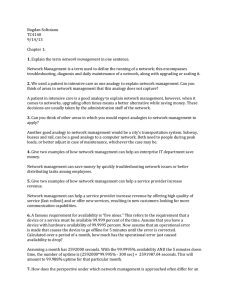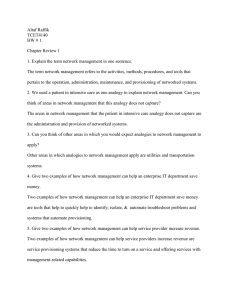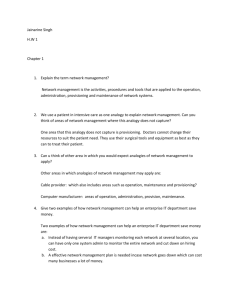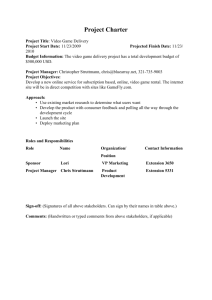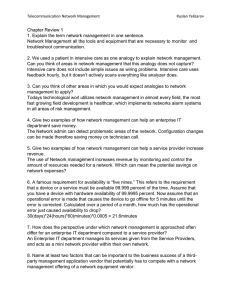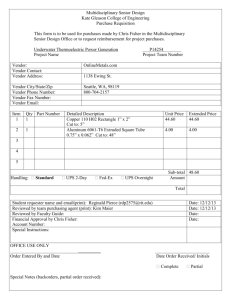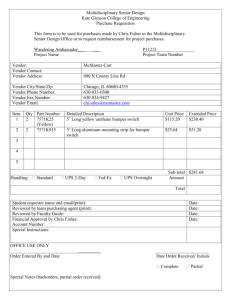Homework #1 - City Tech OpenLab
advertisement
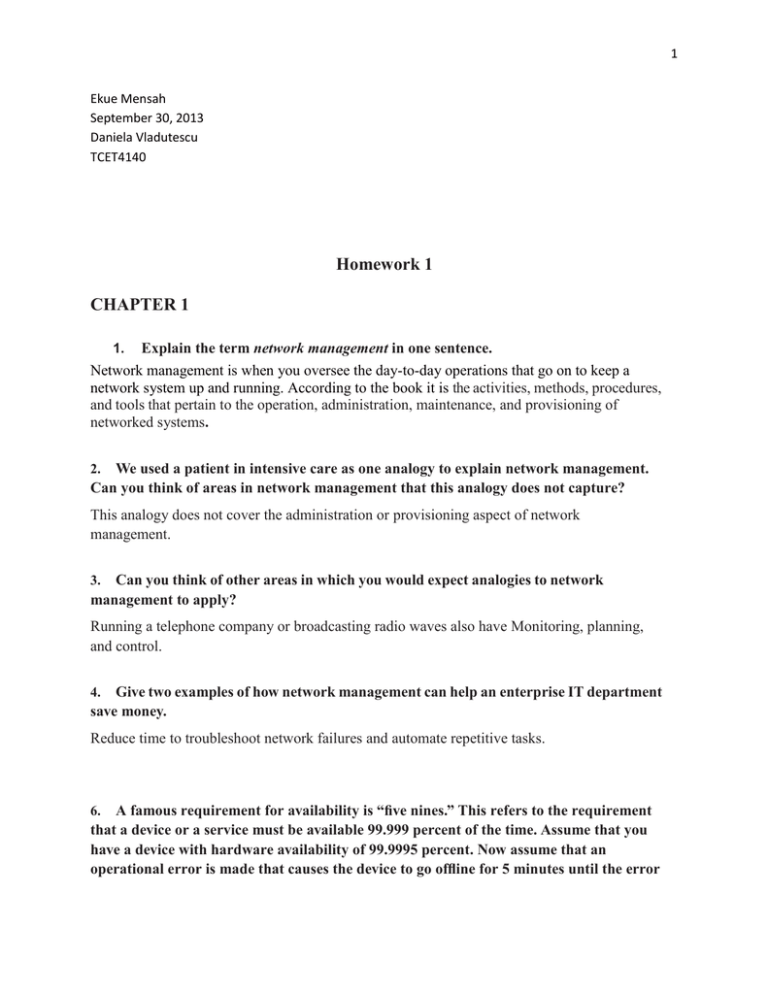
1 Ekue Mensah September 30, 2013 Daniela Vladutescu TCET4140 Homework 1 CHAPTER 1 Explain the term network management in one sentence. Network management is when you oversee the day-to-day operations that go on to keep a network system up and running. According to the book it is the activities, methods, procedures, and tools that pertain to the operation, administration, maintenance, and provisioning of networked systems. 1. We used a patient in intensive care as one analogy to explain network management. Can you think of areas in network management that this analogy does not capture? 2. This analogy does not cover the administration or provisioning aspect of network management. Can you think of other areas in which you would expect analogies to network management to apply? 3. Running a telephone company or broadcasting radio waves also have Monitoring, planning, and control. Give two examples of how network management can help an enterprise IT department save money. 4. Reduce time to troubleshoot network failures and automate repetitive tasks. A famous requirement for availability is “five nines.” This refers to the requirement that a device or a service must be available 99.999 percent of the time. Assume that you have a device with hardware availability of 99.9995 percent. Now assume that an operational error is made that causes the device to go offline for 5 minutes until the error 6. 2 is corrected. Calculated over a period of a month, how much has the operational error just caused availability to drop? (30 × 24 × 60 × 60 = 2,592,000 seconds in a month for 99.999 percent if rate is 99.9995 percent it is available for 2,591,987 seconds had the operational error not occurred. With the 5 minutes of additional downtime, it was available only for 2,591,687 seconds, or 99.988 percent How does the perspective under which network management is approached often differ for an enterprise IT department compared to a service provider? 7. For service providers network management is very competitive and they have to try and put out the best possible service. For enterprise IT they look at network management as a cost they manage. Name at least two factors that can be important to the business success of a thirdparty management application vendor that potentially has to compete with a network management offering of a network equipment vendor. 8. Support many vendor applications and be able to implement the needs of the vendor faster.. 9. What does the term swivel-chair syndrome refer to, and why is this undesired? Switching between terminals to perform management because there is a lack of integration between management applications. Name two or more reasons for network management applications to be approached as distributed systems. 10. A network by default is set up to be multiple systems distributed and communicating with each other. Also having your system distributed in different areas will make the system more fault tolerant for example if your whole network is in one area and it dies you will lose everything. CHAPTER 2 2. What does Pat’s employer use to track the resolution of problems in the network? 3 They use a ticketing system to keep record of the issue and resolution for reference. How does the integration of the work order system with the trouble ticket system make Pat’s job easier? 3. Prevents you from contuining to write down the same information over and helps you keep track of the status of the resolution and if progress is being made. Also you can look for past tickets with similar issue and view how they resolved the issuee. Which network provider do you think will be more vulnerable to human failures by operations personnel, Pat’s or Chris’s? 4. Chris’s because Pat’s system is more regulated and has automated procedures to prevent things falling through the cracks. Which of the following can be used as management tools? A. alarm management system, B. spreadsheet, C. pencil and piece of paper, D. all of them. 5. All of them can be used to keep track in conjunction. In how many different places does Chris need to maintain the same phone number, and why could this be an issue? 6. In four places IP PBX, voice-mail system, phone number inventory, company directory. When Chris is worried about compromised security of his company’s network, does the threat come from outside attackers or from within the network? 7. The threat came from inside and it needs as much attention as an outside threat. Connectivity between different company sites is provided by an outside MSP. Why is Chris nevertheless concerned with monitoring traffic statistics across these outside connections? 8. Make sure they are receiving quality of service. 10. Why is Sandy interested in “old” performance data and traffic statistics, even though she is not monitoring actual network operations? To see how the network has improved or could improve. 4
